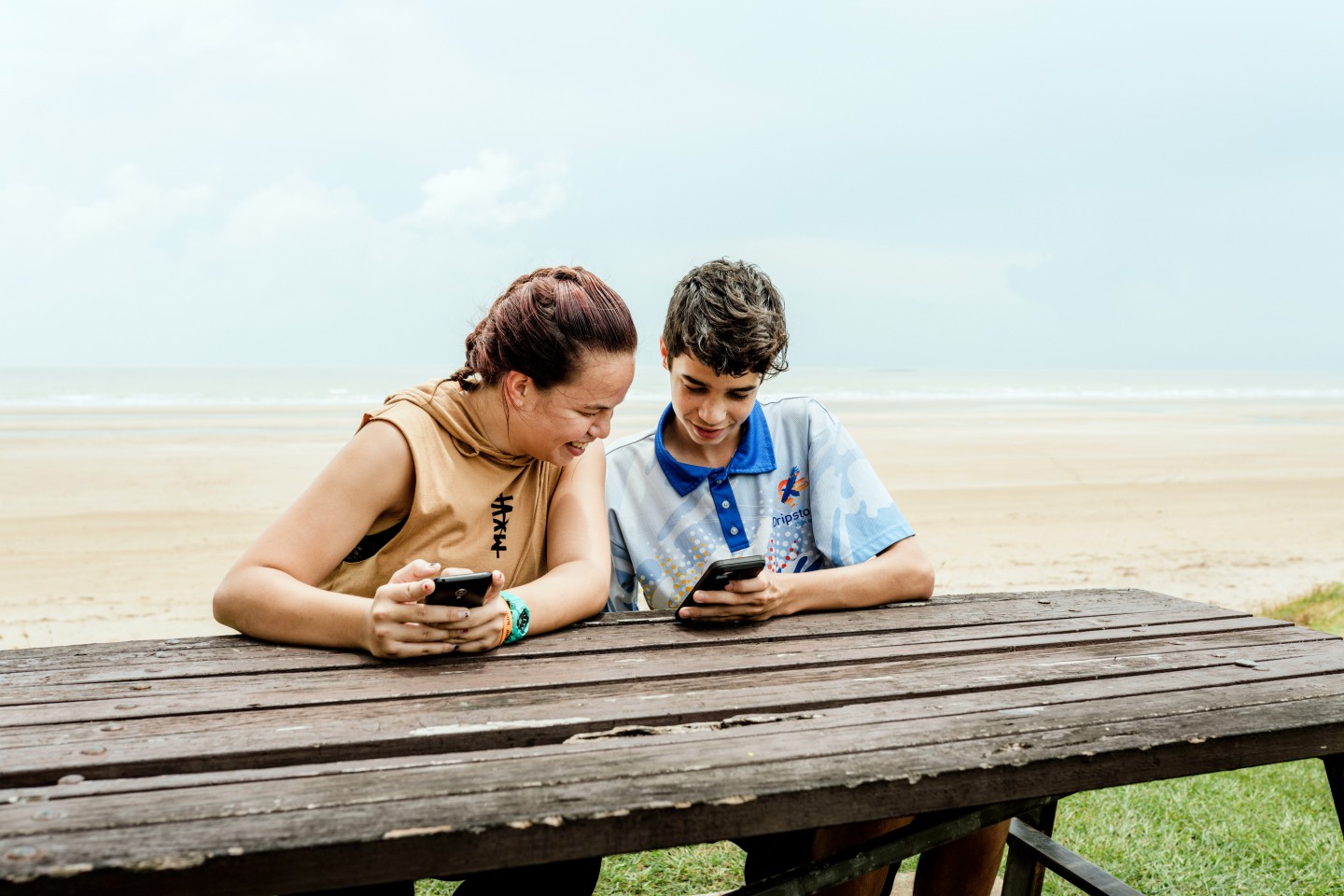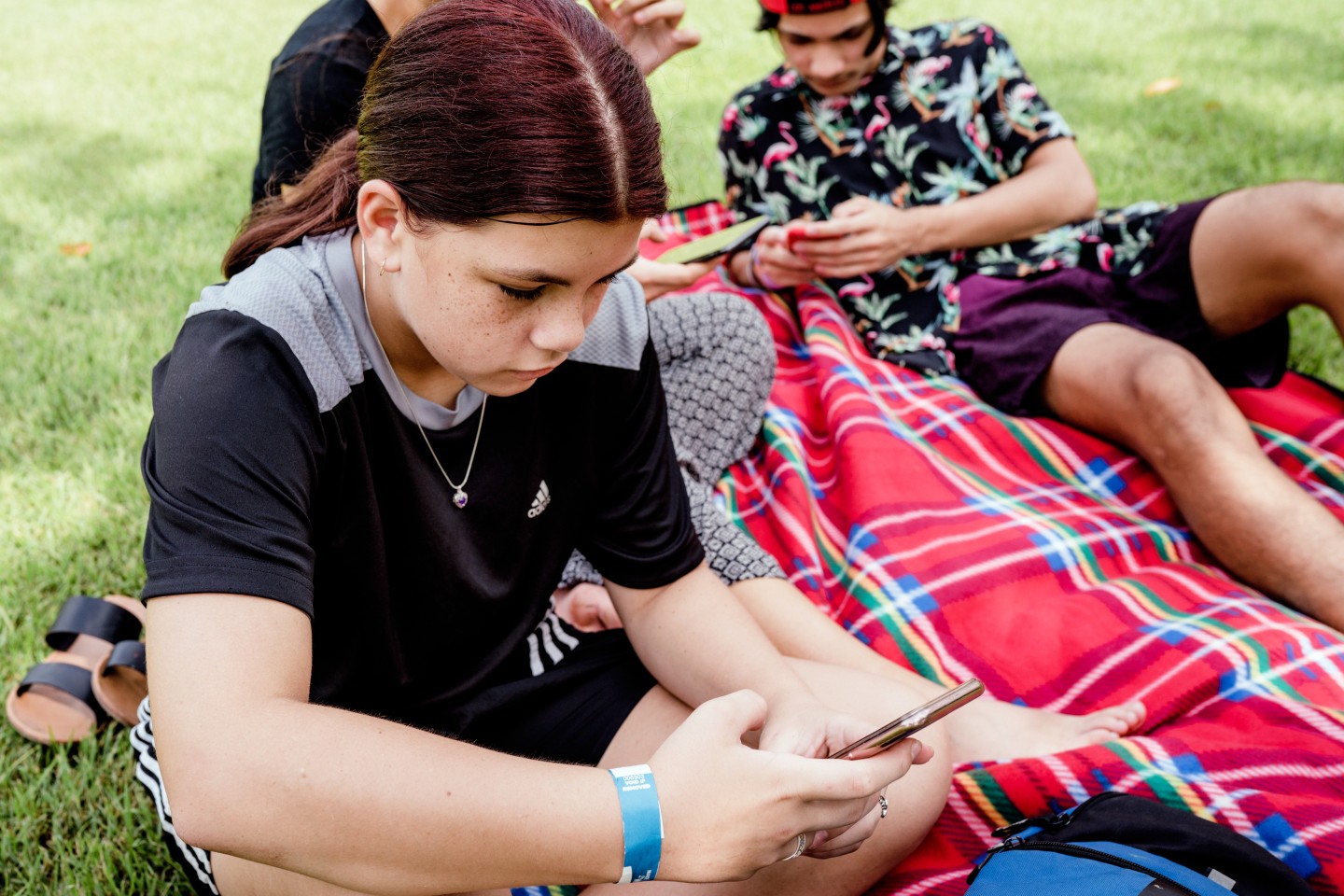Social media can be a big part of life, it’s where many of us connect with friends, find community, share what we care about, explore our identity, have fun, express our creativity, and keep up with what’s happening in the world.
With new rules coming in for social media restricting people under 16 from using certain online platforms, you might feel a bunch of different things; confused, annoyed, worried, relieved, or maybe not that fussed. Whatever you feel is valid. These changes might not affect everyone in the same way, but if you are under 16, they could change the way you connect and share online.
Here are 7 tips to help you navigate the changes while still staying connected, creative, and in control of your online life.
1. Find out the facts
There’s been a lot of talk about what will be restricted and how the restrictions will be imposed so getting clear on what the changes actually mean and how they might apply to you is the first step towards planning how you can support yourself through them. Ask questions, read trusted news sources, or talk with an adult that understands.
You can read up on the latest here:
-
The e-Safety Commissioner’s website has the official Social media age restriction pages and FAQs, which are updated regularly
-
headspace has also published resources for young people with FAQ’s on the social media ban
Some questions to explore might be…
“What exactly is changing? How does it apply to me?”
“What platforms are affected by the new rules? Are they platforms that I use?”
“Will I still be able to see my content or does it mean I have to delete my account?”
“Are there any exceptions to the rules? What happens if someone breaks the new rule?”
2. Notice how you feel about it
Take a moment to check in with yourself. How do you feel about the changes? Are you feeling frustrated? Relieved? Left out? Curious? Not fussed? A bit of everything? Whatever it brings up for you is valid. Your feelings might change over time — and that’s okay. Talking about it with friends or family might also help you make sense of it. Your feelings may also be different from the feelings of your friends, siblings, or other family members and that’s okay too.
You don’t have to have it all figured out straight away.
3. Think about your current online spaces
What apps or platforms do you use most? What do you like about them? What’s tricky or not so great? What needs do they meet for you? Connecting, sharing, relaxing, exploring, getting inspired? Are there things that get in the way of hobbies or interests?
Understanding your current habits can help you work out what you might miss — and what you might not.
4. Keep your connections alive
If you can’t use certain platforms anymore, it doesn’t mean you can’t keep in touch. Chat with friends about other ways to stay connected — group chats, email, online games, video calls, or even meeting up in person if that’s possible.
5. Explore new ways to share and express yourself
Social media isn’t the only way to create and connect. You could join a club, get into photography, art, music, sport, or gaming communities that meet offline. You might also discover or lean into cultural, faith based, or identity affirming connections and groups. If you’re not used to sharing and expressing yourself in these ways it might feel weird at first, but it could open up new experiences you didn’t expect.
6. Look after yourself
Changes like this can be stressful. Make time for things that help you relax and recharge. What helps you feel supported, safe, and connected? Things like moving your body, being creative, focusing on hobbies, spending time in nature, reading, writing, talking to friends, or just having a break from screens might be useful. If you’re feeling low or anxious, reach out for support early.
7. Stay part of the conversation
Your voice matters. Share your thoughts with people you trust, join youth forums, or get involved in discussions about online safety and access. Being part of the conversation means you can help shape what the future of social media looks like for young people.
If it feels tough…
You’re not alone. It’s normal to feel mixed emotions or to miss parts of your online life. Give yourself time to adjust and keep talking about it with friends, family, Elders, or professional support like headspace. You can also reach out to places like Kids Helpline (1800 55 1800) for support.
The bottom line
It’s okay to feel different things about the restrictions. Whether you are on board with the ban or frustrated that the social media restrictions are being imposed, if you are under 16 it’s likely the changes will effect your usual ways of accessing online spaces.
Now is a good time to think about the ways you can connect, share, and express yourself once the ban comes into effect. It might take some getting used to but the ban could also be a chance to explore new online and offline spaces, strengthen friendships, and try things you haven’t before.
How to get support
If you are having a tough time, get in touch with your local headspace centre or use our online or phone-based service at eheadspace.
For immediate help contact: triple zero (000) if it is an emergency National 24/7 crisis services:
-
Lifeline: 13 11 14 or lifeline.org.au
-
Suicide Call Back Service: 1300 659 467 or suicidecallbackservice.org.au
-
Beyond Blue: 1300 224 636 or beyondblue.org.au
Additional youth support services include:
-
Kids Helpline: 1800 55 1800 kidshelpline.com.au
-
ReachOut: reachout.com
-
SANE Australia: 1800 187 263 sane.org
The headspace Content Reference Group oversee and approve resources made available on this website.
Last reviewed October 2025.
Get professional support
If you feel you need help there are a range of ways we can support you.


